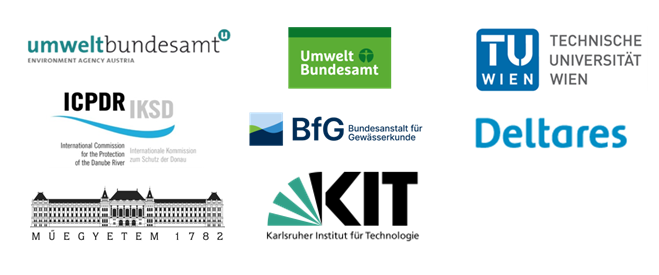„River Basins“- International Conference on Monitoring, Modelling and Management of River Basins
RIVER BASINS is a conference which provides a platform for the exchange of recent progresses and research in the field of river basin management. This includes the quantification of water and mass fluxes, the investigation of processes in river systems and ecological research as well as the implementation of promising management strategies.
This time, RIVER BASINS 2026 will be hosted by the Institute for Water and Environment - Water Quality Management of the Karlsruhe Institute of Technology.
Please send your Abstracts via email to riverbasins ∂does-not-exist.iwu kit edu -- abstract submission deadline extended until 31. January 2026
When: 11 – 12 June 2026
Where: Triangel Karlsruhe (Kronenplatz)

The theme will be Emissions in River Basins – Sources and Sinks, with focus on Modelling, Monitoring and Management.
River basins form interconnected systems transporting water, nutrients and sediments. As such, they enable diverse ecosystems and support human societies. With increasing anthropogenic activities and rapid urbanization, river basins progressively accumulate and transport various pollutants, posing significant environmental challenges. Emissions of pollutants, both from point and diffuse sources lead to degraded water quality with far-reaching consequences on aquatic and terrestrial ecosystems. Understanding the sources and sinks of emissions within river basins and implementing effective management strategies is pivotal for sustainable water resource management and safeguarding ecological integrity.
Monitoring is challenged by
- the choice of relevant substances
- the selection of monitoring sites and monitoring frequency
- the constraints of limited staff and budget
- the development of sampling procedures allowing analysis of multiple compounds with different properties
- the availability of sufficient analytical methods for yielding quantitative results even if substances occur only in trace amounts
Modelling emissions, transport and fate is challenged by
- the availability and accessibility of monitoring data
- data gaps and errors as well as non-harmonized standards of differing data sources
- the application of adequate (statistical) procedures for data processing and evaluation
- suitable modelling approaches of emission pathways fitting the respective purpose
Management built on monitoring and modelling faces additional challenges
- of ever-new substances emerging next to the already investigated and regulated ones
- of identification efficient pollution mitigation measures
- the need of cross-sectoral cooperation of different land and water users (e.g. agriculture, transportation, industry….).
For exchanging ideas on these issues, the Scientific Committee of RIVER BASINS 2026 invites you to present and discuss your recent experiences, developments and research activities by submitting abstracts (max. 500 words) for oral or poster presentations. Please submit your abstract as pdf document via email to riverbasins∂iwu.kit.edu before 31. January 2026.
RIVER BASINS 2026 is organized in cooperation with:


